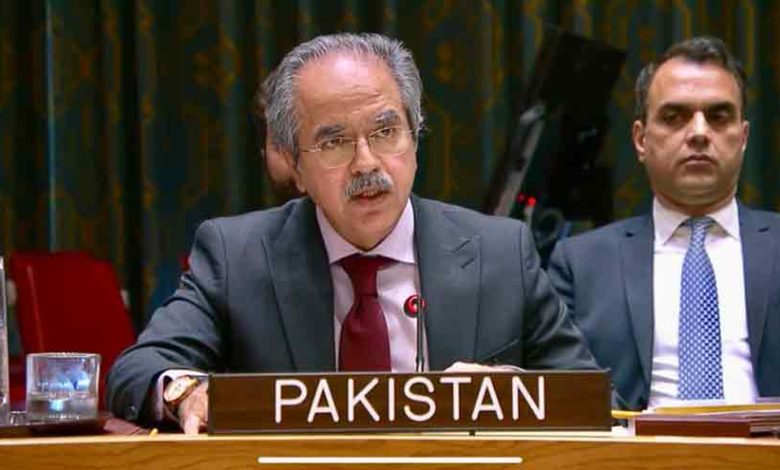Pakistan demands that the role of UN peacekeeping forces in resolving conflicts be expanded.

In order to address the root causes of conflicts, Pakistan has asked for the United Nations peacekeeping forces to be strengthened and better equipped. The country has stated that the missions should be planned with definite objectives, manageable tasks, and credible leadership.
Pakistan’s permanent representative to the UN, Ambassador Asim Iftikhar Ahmad, told the UN Security Council on Tuesday that missions should be given the authority to maintain ceasefires, discourage escalation, and promote communication, including through the Secretary-General’s good offices and preventive diplomacy.
He expressed worry that peacekeeping, like the UN, was under attack because it was starved of resources, had limited mandates, and was becoming less visible during a debate on UN peace operations that was hosted under South Korea’s leadership.
However, the Pakistani envoy stated, “We cannot allow inaction to marginalize one of multilateralism’s most potent instruments.” Since we all have a stake in its success, we must take action to not only maintain but also enhance this tool’s relevance, suitability, and future readiness to meet the various challenges in the field of peace and security.
Ambassador Asim Iftikhar Ahmad of Pakistani Blue Helmets noted the tremendous support demonstrated at the 2025 Berlin Peacekeeping Ministerial Conference and added that Pakistan had contributed to and witnessed many of the UN peacekeeping’s success stories. “However, support must be followed by action.”
In this context, he advocated for addressing resource limitations.
“Peacekeeping continues to be the most economical tool of peace, with a budget of only $5.4 billion, or less than 0.2 percent of global military spending,” the Pakistani envoy stated. However, payment delays and liquidity issues damage credibility and leave hazardous gaps. The full and timely payment of assessed contributions is required.
He emphasized that protecting civilians must continue to be a top priority since it is both morally required and strategically essential. “Mandates need to be reinforced, supported, and resourced by mission leadership accountability.”
He stated that the safety and security of peacekeepers must be guaranteed and that nations that contribute troops and police, which bear the brunt of the task in the field, should not be left out of important decisions. “Accountability to peacekeepers” must be genuine; in order to deter attacks on them, they must be looked into and prosecuted.
The Pakistani envoy stated that peacekeeping must advance rather than retreat and that missions should properly embrace new technologies, address security threats associated with climate change, increase the number of women peacekeepers, and involve local populations.
He concluded by stating that Pakistan has been a strong supporter of the United Nations in the cause of peacekeeping and has hosted the United Nations Military Observer Group in India and Pakistan (UNMOGIP), one of the oldest UN operations, in Jammu and Kashmir.
According to Ambassador Asim Iftikhar Ahmad, almost 250,000 Pakistanis have served in 48 missions, frequently in the most challenging conditions. The sacrifice of 182 Pakistani peacekeepers demonstrated Pakistan’s dedication to multilateralism and the UN Charter.
“We honor all peacekeepers, both current and former.”
“This endeavor, which is in fact a test of our collective resolve to maintain international peace and security, requires the full political support and sufficient resources of the Security Council and the wider UN membership,” he continued.